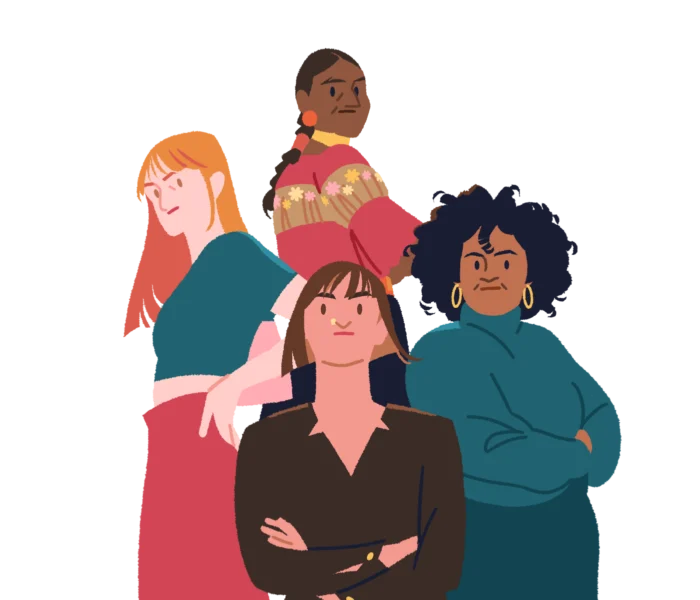
Our asks
It’s a sad truth that not one country has achieved the equality promise set out by the Sustainable Development Goals. In fact, progress remains slow and in some cases is backsliding. The SDG Gender Index, allows us to identify where progress is (and isn’t) happening and outline recommendations to get us back on track to achieve the 2030 agenda.
Explore these asks further!

Elevate women’s and girls’ leadership, power, and voice
The participation of women and girls in public life is not only a core human right but is also essential for countries’ social and economic health. Yet gender norms about leadership, as well as poverty, care burdens and violence against female public figures, often exclude women and girls from decision-making spaces.

Reform and apply equality laws and policies
The process of adopting and/ or reforming equality laws can engage civil society, government, lawmakers, and the wider public in debate and norm-setting and can create pressure and structures for accountability.

Promote ‘data feminism’ and close gender-sensitive data gaps
Closing gender-sensitive data gaps is vital to monitor policies and inform the decisions of policymakers. But we must go beyond this to also promote ‘data feminism’, recognising the power imbalances and colonial legacies baked into statistical systems, practices, and institutions.

Increase resources for and investments in public services and social infrastructure, including care
The social transformation needed for gender equality must be funded, which requires gender-responsive budgets, progressive taxation and strong investment in public services and public (including care) infrastructure.

Recognise and respond to the unique needs and life stage of adolescent girls and young women
The evidence is clear: when girls’ rights are realised, societies flourish. Experiences and opportunities in this unique life stage can set the tone for a girl’s entire future.

Invest in and create space for feminist organisations and movements
Little progress on women’s rights would have been made without collective pressure and advocacy from feminists. They need better resources and safe, secure spaces in which to operate and advocate.

Centre gender equality and justice at the heart of international solidarity and cooperation
We need continued collaboration across governments in multilateral spaces to protect gender equality commitments against the concerted efforts of anti-rights actors. And we need aid, loans, and grants to be invested in gender equality and the programmes and policies that protect it.


